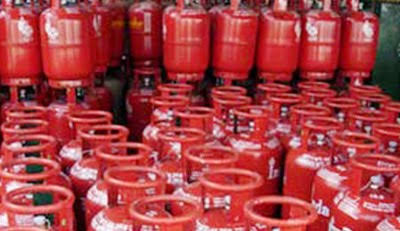News Investigators/ Stakeholders in the oil and gas sector have urged the Federal Government to boost local LPG production and processing capacity to curb rising cooking gas prices and stabilise domestic supply.
The stakeholders, who spoke in separate interviews with the News Agency of Nigeria (NAN) on Sunday in Lagos, said increased investment in local plants, supply chain optimisation, and stronger regulatory support were critical to stabilising the domestic LPG market.
Ayobami Olarinoye, Chairman, Liquefied Petroleum Gas Retailers Association of Nigeria (LPGAR), said the Federal Government must ensure compliance among licensed operators and prioritise product availability through better coordination with offtakers and refineries.
He noted that the government should address the price disparity between offtakers and the country’s only functioning private refinery to ease sourcing challenges faced by retailers.
Mr Olarinoye said, “The price is gradually returning to normal.
“There’s noticeable improvement in supply, and the average retail price now ranges between N1,200 and N1,500 per kilogram, depending on location and source.”
He stressed that LPG retailers were not responsible for the price hikes, attributing the situation to supply constraints rather than deliberate price manipulation.
Mr Stanley Simon, a gas retailer at Oyingbo, said Nigeria must urgently expand its local gas infrastructure and channel more product into the domestic market rather than for export.
“The recent spike in cooking gas prices and supply challenges is a wake-up call for Nigeria.
“What was once progress, greater LPG penetration and cleaner cooking, risks being reversed unless decisive, coordinated action is taken,”Simon said.
He said beyond controlling prices, Nigeria needed a system-wide strengthening of production, supply, and distribution, alongside fiscal incentives and social protection measures for vulnerable households.
“With hundreds of millions of Nigerians depending on affordable cooking energy, the stakes are high.
“While domestic LPG production has reportedly reached about 80 per cent of consumption, affordability remains a major challenge,” he added.
In Mushin, another retailer, Mr Seyi Balogun, attributed the recent price surge to reduced supply from major distributors and higher depot prices.
“Sometimes we go days without supplies. When we finally get gas, it’s costly, and we have to add a margin, or we’ll run at a loss,” Balogun said.
He appealed to the government to intervene urgently, warning that prolonged scarcity could worsen the already high cost of living.
Balogun, however, noted that Nigeria’s vast natural gas reserves and growing LPG infrastructure offered significant potential for scaling up clean cooking, provided affordability and supply bottlenecks were resolved.
“Reducing dependence on imported cylinders, boosting local manufacturing, and supporting domestic production can create jobs and ease foreign exchange pressure.
“A stable LPG market also supports the nation’s clean energy transition and protects households from fuel supply shocks,” he said.
A NAN correspondent who monitored the situation observed that the price of cooking gas, which had risen to between N2,000 and N2,500 per kilogram earlier this month.
It has now dropped to about N1,300 to N1,500 in areas such as Apapa, Ketu, Fadeyi, Somolu, Bariga, and Surulere.
Similarly, some filling stations along Ikorodu Road, Palmgrove, Anthony, and Apapa now sell gas between N1,100 and N1,300 per kilogram.
A 12.5kg cylinder, which previously sold between N25,500 and N27,500, now goes for about N20,500 as of Oct. 24.
However, in Victoria Island, some outlets still list prices between N23,000 and N25,000, equivalent to about N2,080 to N2,200 per kilogram.
NAN also observed that the initial scarcity has eased significantly, with queues disappearing and most refill stations dispensing regularly.
Some consumers urged the government to sustain efforts to stabilise prices, warning that unless production and infrastructure issues were addressed, LPG, once a clean and affordable cooking fuel, could become a luxury item.
They stressed the need for long-term investment in storage, local production, cylinder manufacturing, and distribution networks to prevent future price shocks.
NAN


